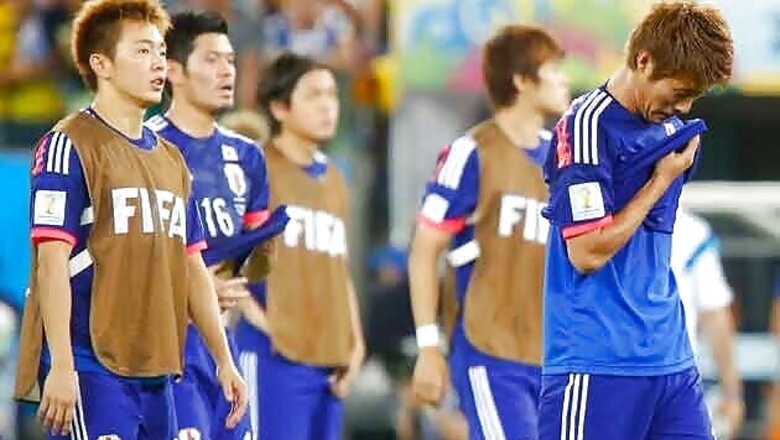
views
Rio de Janeiro: Three of the four Asian Football Confederation (AFC)-member teams have already packed their luggage for their return home with only South Korea clinging to a slim chance of advancing to the next round at the ongoing World Cup.
The latest setback for the Asian teams came on Wednesday when Iran surrendered 1-3 to Bosnia-Herzegovina in Salvador in the last group round, lying bottom of Group F, reports Xinhua.
Iran coach Carlos Queiroz, who has confirmed his resignation, admitted the difference between Asian soccer and European soccer: "We tried our best and went up to the limit of our mental capacity, but today the experience of the opponents and the ability to play in Europe made a difference."
On Tuesday, Japan were humiliated by Colombia 1-4 in the final round of Group C -- and thus leave the World Cup with just one point. Australia fared no better, losing all their three matches in Group B.
So far in this World Cup, Asian teams are yet to score a win in 11 matches as the three draws and eight defeats are far below expectation. As the last matches of Group H kick off Thursday, South Korea remain the only Asian hope to qualify for the round of 16. But for that to happen, South Korea have to win big against group leader Belgium and if Russia edges Algeria with a narrow victory.
Going over World Cup history reveals that the Asian sides have hardly shared the limelight at the centre stage of the soccer gala.
In Italy in 1990, neither the United Arab Emirates nor South Korea notched a win. At the 1994 World Cup in the United States, Saudi Arabia reached the knockout phase and four years later Iran famously beat the United States in France in a group match.
The most successful World Cup for the Asians came in 2002 when it was co-hosted by South Korea and Japan when South Korea reached the semi-finals on their home soil. Four years later, Australia's Socceroos reached the knockout phase in Germany.
Judging their performance here, some opined there is still a long way for Asian soccer before it catches up with the American and European counterparts.
"Asian teams year after year keep making the same mistakes, so they'll never be able to be on the same level as Europe or South America," Queiroz said ascribing the defeat to the competition system, the training and organization.
"The officials persist in copying Europe and the gap is bigger and bigger," he added.
Bora Milutinovic, who has coached five different teams, including China, at the World Cup, also believed that Asian teams were far behind in terms of tactics and creativity of players.
"Asian footballers seem to be produced by a machine, they play in the same way and lack of creativity. If Asians wouldn't reflect and thus make changes, they surely will be left behind in the future too," he said.
However, some others hold that Asian teams are making progress and they have a chance to emerge as the strongest teams as long as they continue.
"If you look at South Korea, they're a little bit like us in that they're going through regeneration and looking to build. I think Japan are still a quality team... they just haven't been rewarded at this stage for the quality they have," said Ange Postecoglou, the coach of Australia.
He added that the Socceroos hoped to come back in four years and would try to be one of the feared teams. "That goes for all the nations in our confederation, and that's the challenge for us over the next four years."


















Comments
0 comment